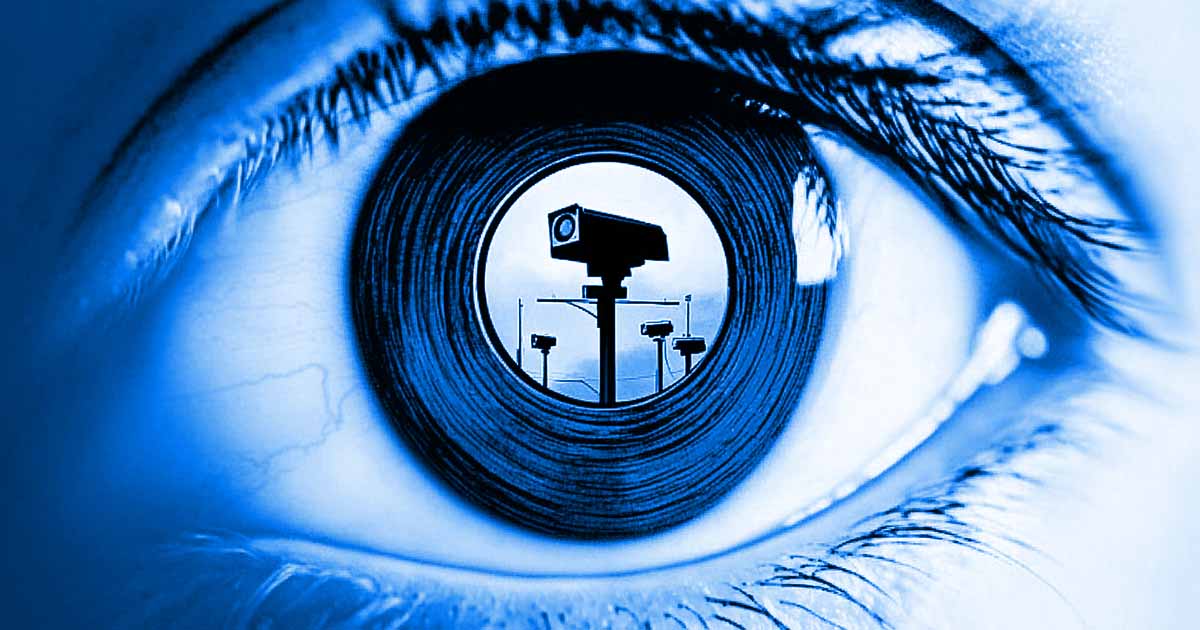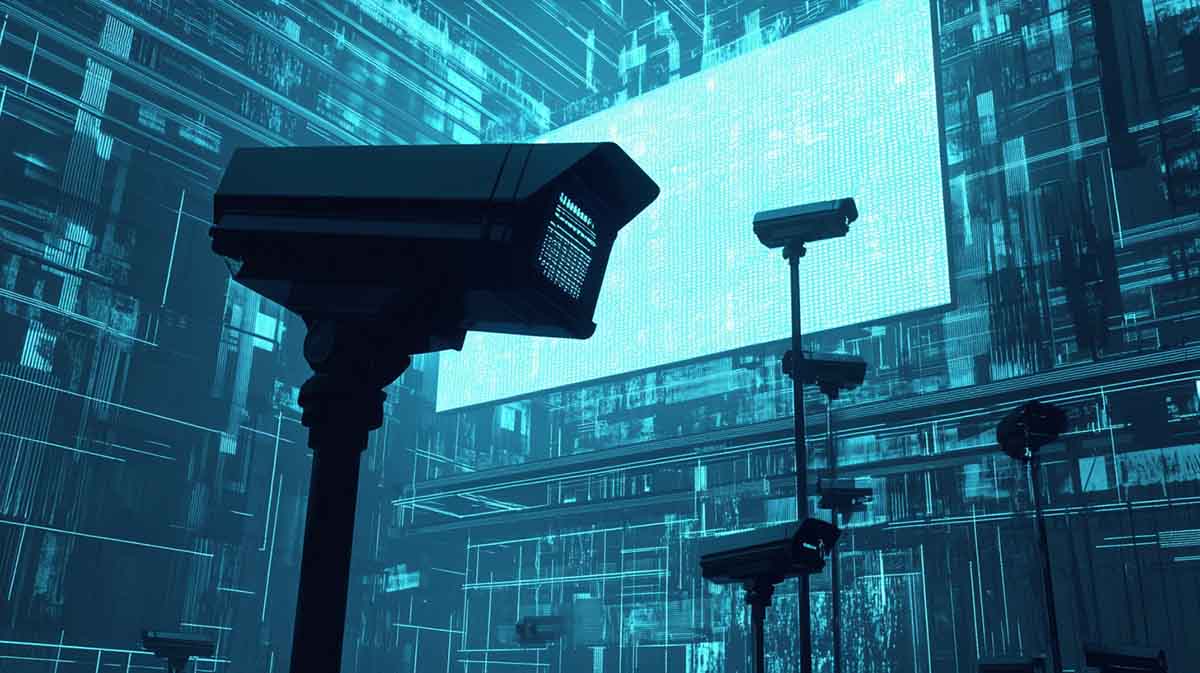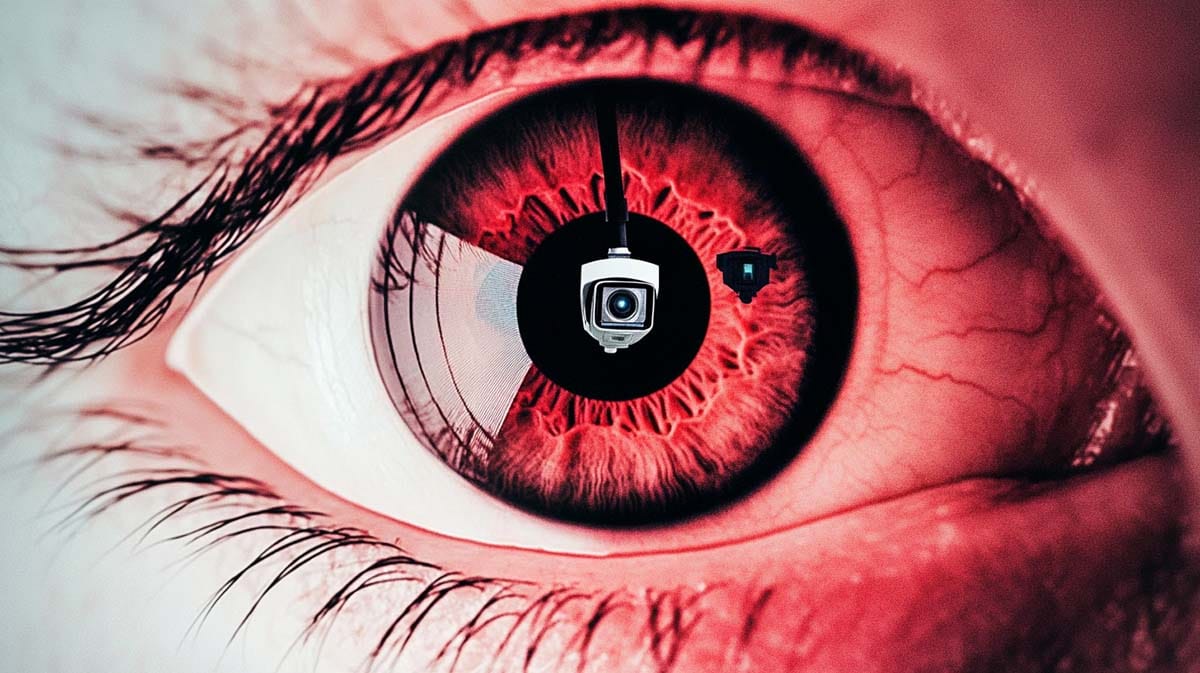Orwell’s Blueprint for the Modern Surveillance State
"1984" by George Orwell exposes a grim dystopia of constant, invasive surveillance and brutal unyielding torture. The classic warns against unchecked state power echoing modern regimes.

In 1949, George Orwell published "1984," a novel that redefined dystopian science fiction and set a benchmark for cautionary tales about totalitarian rule.
At a time when the world was still recovering from the ravages of war and grappling with the realities of ideological conflict, Orwell's work struck a deep chord.
Today, as advanced surveillance systems and state-sponsored data collection have become part of everyday life—especially in evil regimes such as modern China—"1984" remains as relevant as ever. Orwell's grim vision of an all-seeing government, one that monitors every move and rewrites history at will, finds an unsettling echo in contemporary practices that infringe on personal liberty and moral accountability.
For readers who cherish traditional Christian and American values, "1984" offers not only a gripping narrative but also a timeless warning about the dangers of unchecked state power. The novel's portrayal of a society stripped of spiritual and moral integrity resonates with those who value the foundational principles of personal responsibility, faith, and freedom. In revisiting this classic, I find myself both entertained and challenged. The story's prescient depiction of pervasive surveillance—complete with its chilling "telescreens" and Thought Police—raises important questions about the role of technology in subverting individual conscience. Indeed, when one considers the modern Chinese surveillance state, Orwell's work appears not as a distant fictional prophecy but as a mirror held up to contemporary reality.
This review is a rediscovery of "1984" that seeks to examine its lasting influence on science fiction and its cautionary lessons for today's technologically advanced yet morally challenged world. By exploring its narrative structure, themes, and character development, we can appreciate how Orwell built a world that remains a powerful warning against the dangers of modern authoritarianism.
Socialist Dystopia
"1984" transports us to a bleak future where the state reigns supreme and individuality is crushed beneath the weight of relentless surveillance. The novel follows Winston Smith, a low-ranking member of the Party, as he navigates a society where truth is what the regime decrees. In this world, citizens live under constant observation by telescreens that watch every movement, while the Thought Police ensure that no dissenting ideas ever take root.
The Party not only controls actions but also manipulates language and history to suit its needs. Records are constantly rewritten, and even the past is a construct of the regime's design. Winston dares to question this order, secretly writing in a diary and seeking a connection with others who might share his doubts. His growing awareness of the regime's hypocrisy and cruelty fuels a desperate desire for truth and personal freedom. Yet, as his rebellion unfolds, it becomes painfully clear that resistance in such a society comes with a steep price.
Orwell's narrative is steeped in speculative ideas. He envisions a society where advanced technology—though primitive by today's standards—is deployed with ruthless efficiency to monitor and control every aspect of human life. The oppressive atmosphere that permeates every corner of the story serves as a powerful allegory for any regime that seeks to subjugate the human spirit by erasing its capacity for independent thought and moral judgment.
Themes and Ideas
At its core, "1984" is a meditation on totalitarianism, socialism's slippery slope, the abuse of power, and the manipulation of truth. Orwell crafts a world where technology is harnessed not for human advancement but for the ruthless suppression of dissent. This is a society where the state's reach is total, its surveillance omnipresent, and its manipulation of history a tool for absolute control. In many respects, the methods depicted in the novel find eerie parallels in modern surveillance practices. When one examines the sophisticated biometric tracking, facial recognition, and AI-driven monitoring systems employed by regimes like China's, Orwell's fictional devices seem uncannily prophetic.
A central element in "1984" is the treatise within the book Goldstein's "The Theory and Practice of Oligarchical Collectivism." Goldstein's work is more than a counter-narrative; it is a dissection of the ideology that sustains the regime. It explains how a government, by monopolizing truth and rewriting history, can maintain an unassailable grip on power. For traditional readers who prize moral clarity and the preservation of time-honored values, this treatise serves as a stark reminder of the dangers inherent in a system that erodes both individual dignity and collective conscience.
Orwell's exploration of language manipulation through "Newspeak" further underscores the erosion of truth. When words lose their meaning, so too does the ability to think freely. In a modern context, one can draw parallels between this fictional control of language and the subtle shifts in public discourse seen in any society that prioritizes control over free expression. The novel calls attention to the importance of objective truth—a concept that is especially dear to those who uphold traditional Christian and conservative values.
The themes of "1984" remind us that technology itself is not evil; it is the absence of moral restraint that corrupts its use. The modern world, with all its technological marvels, faces a critical test: to ensure that these tools serve to enhance human freedom rather than restrict it. As governments adopt ever more invasive measures to monitor and control their populations, Orwell's cautionary words remain a vital call to safeguard the very essence of our humanity.
Innovative Concepts and World-Building
One of Orwell's most impressive achievements in "1984" is his ability to construct an immersive, dystopian world that feels both horrifying and plausibly real. The Party's arsenal of technological devices—most notably the telescreen—functions as a symbol of the regime's unyielding control. These devices do more than record; they broadcast the omnipresent eye of Big Brother, ensuring that no act of dissent goes unnoticed.

Orwell's imagined technology may seem dated in the era of smartphones and ubiquitous digital cameras, yet the underlying concept remains strikingly relevant. Modern surveillance systems, particularly those deployed by evil regimes like China's, rely on advanced biometric data and artificial intelligence to track individuals with a precision that Orwell only hinted at. The relentless monitoring in "1984" is no longer confined to the pages of a novel; it has materialized in the form of surveillance cameras, facial recognition software, and data collection programs that penetrate every facet of daily life.
The world-building in "1984" is both meticulous and expansive. Every detail, from the oppressive urban landscape to the bleak interiors of government facilities, contributes to an atmosphere of inescapable dread. This setting is not merely a backdrop for the narrative but an active participant in the story—a physical manifestation of the Party's power. For readers who appreciate science fiction that reinforces traditional values, the novel's world stands as a testament to the necessity of moral and spiritual resilience in the face of technological overreach.
Orwell's speculative vision challenges us to consider the implications of advanced technology when divorced from ethical considerations. His imagined society is a warning: when technology is used without the tempering influence of moral accountability, it can become a tool for dehumanization and oppression. The parallels between Orwell's fictional state and the modern Chinese surveillance apparatus serve as a reminder that the battle for freedom is not fought on the battlefield alone, but in the realms of data, language, and everyday life.
The Breaking of Dissent
In "1984," the systematic torture of Winston Smith serves as one of the most harrowing demonstrations of totalitarian power. After his arrest by the Thought Police, Winston is dragged into the grim depths of the Ministry of Love, where the Party employs both brutal physical violence and relentless psychological manipulation to crush any spark of rebellion. Through a series of unyielding interrogations, the regime dismantles not only his body but also the very core of his spirit.
The pinnacle of this dehumanizing process occurs in Room 101, where Winston faces his worst fear—a calculated cruelty designed to force him to betray his innermost beliefs. Here, the Party transforms terror into a precise instrument of control. Every moment of his suffering is a reminder that in this dystopian society, resistance is futile. The physical pain, coupled with the mental anguish of having his convictions systematically stripped away, leaves Winston a broken man, a mere shadow of his former self.
This vivid portrayal of torture is not simply an exercise in shock value. Instead, it underscores Orwell's central warning: when a regime wields technology and brutality without moral restraint, it can obliterate the human capacity for truth and resistance. For readers who uphold traditional values—where personal dignity, moral accountability, and spiritual resilience are paramount—Winston's ordeal stands as a stark reminder of the dire consequences when any government seeks to subjugate both the body and soul. His journey through pain and degradation serves as a timeless call to safeguard the freedoms and ethical foundations that define a just society.
Character Development
At the heart of "1984" lies the story of Winston Smith, a man who embodies the struggle of the individual against an all-powerful regime. Winston is not a hero in the traditional sense; he is an ordinary man burdened by a system designed to crush the human spirit. His internal conflict, marked by a deep yearning for truth and genuine connection, reflects the eternal tension between personal morality and oppressive authority. For readers who value traditional archetypes, Winston's journey is emblematic of the classic struggle for integrity in an unjust world.
| Character | Description |
|---|---|
| Winston Smith | The everyman protagonist who quietly rebels against Big Brother's oppressive regime, seeking truth and freedom. |
| Julia | A passionate dissenter who challenges state control through personal acts of rebellion and the pursuit of freedom. |
| O'Brien | A cunning Party official who masquerades as a mentor while enforcing the regime's brutal, totalitarian rule. |
| Goldstein | The symbolic dissident whose treatise critiques totalitarianism, embodying the intellectual opposition. |
Julia, Winston's clandestine partner, represents a different facet of resistance. Her rebellion is driven by a desire for personal freedom and physical pleasure, challenging the sterile, controlled environment imposed by the Party. Yet, her character also serves as a reminder that even acts of rebellion can fall short of challenging an entrenched system that thrives on the suppression of both body and soul.
O'Brien, the enigmatic figure who initially appears as a mentor but ultimately reveals himself as a staunch enforcer of Party orthodoxy, exemplifies the insidious nature of totalitarian power. His intellectual prowess and ruthlessness serve as a chilling illustration of how those in power can manipulate ideology to destroy dissent. Through O'Brien, Orwell exposes the terrifying reality that authority can corrupt the mind and erode the very foundations of truth.
The symbolic presence of Goldstein, though he appears only through his subversive treatise, reinforces the intellectual backbone of the resistance. Goldstein's "The Theory and Practice of Oligarchical Collectivism" is presented as a work of profound insight into the mechanics of totalitarian rule. It challenges the reader to consider the nature of power and the importance of maintaining an independent moral compass in a world that seeks to control both thought and action.
Each of these characters is crafted to reflect a timeless archetype—the reluctant hero, the defiant rebel, the corrupt enforcer, and the ideological dissenter. Their interactions and inner conflicts provide a rich tapestry against which the central themes of surveillance, control, and the loss of individual integrity are vividly drawn. For readers who hold fast to traditional values, the characters in "1984" serve as both cautionary figures and rallying points for the enduring fight for freedom and moral clarity.
Too Real
"1984" endures as a seminal work of science fiction because it offers a stark warning against the dangers of unchecked power and technological overreach. Orwell's vision of a society where the state wields technology as a tool of oppression is as compelling today as it was in the mid-20th century. In an era when governments, particularly in nations like China, deploy advanced surveillance systems that monitor every facet of daily life, the novel's lessons resonate with renewed urgency.

For those who cherish individual liberty and uphold traditional Christian and American values, "1984" is more than just a work of fiction; it is a call to remain vigilant in defense of truth, moral order, and the sanctity of the human spirit. As we navigate a world increasingly shaped by technology, Orwell's narrative challenges us to ensure that our tools serve to uplift humanity rather than subjugate it.
Revisiting "1984" is both an intellectual exercise and a moral imperative. It reminds us that the fight for freedom is ongoing and that the preservation of traditional values remains essential in the face of modern challenges. In this light, Orwell's classic remains a beacon—a timeless guide urging us to resist the forces that would compromise our freedom and our faith.

